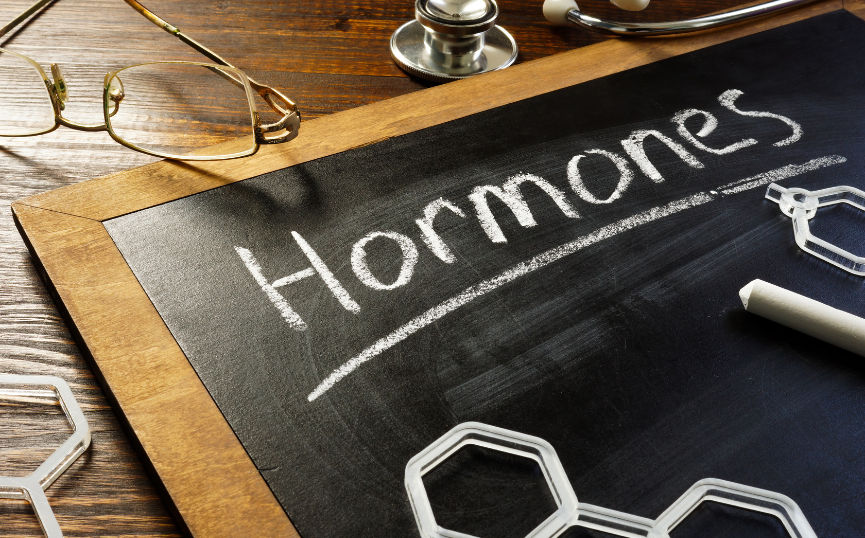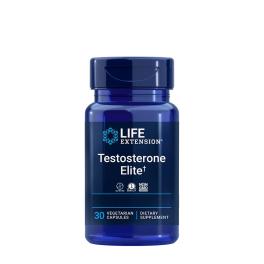Testosterone
Testosterone is an important sex hormone that has many effects on the human body. It affects many physical and mental characteristics. It is also present in women, although in much lower amounts.

The decline in testosterone levels with age is a natural process, but certain factors and lifestyle factors can cause unwanted decline in the body’s production of testosterone.
In this article, we look at the role of testosterone and describe the factors that affect testosterone levels.
If you think of hormones as a machine, man would have a simple mechanism that can be operated by a switch, and women would have a complex system. Unlike men, women’s hormone function is a complex, multi-factorial structure, with more fluctuations in a month than a man’s body has in a lifetime.
In men, testosterone is the dominant hormone. Testosterone production starts in adolescence and then slowly declines by 1-2 per cent per year at around 30-40 years of age. Testosterone production in men occurs in the testes and adrenal cortex, under the control of the pituitary gland.
What is testosterone?
Testosterone is the main male sex hormone responsible for the development of male features. Sex hormones ensure the separation of sex characteristics and are later responsible for the development of secondary sex characteristics. Testosterone is therefore responsible for hair growth, a deep voice, more muscle mass, etc. kialakulásáért. It also influences the function of the reproductive system and libido, and testosterone also plays a role in the function of the skin, muscles, bones, kidneys, liver, bone marrow and central nervous system.
What is the role of testosterone?
In addition to the androgenic effects mentioned above (primary and secondary sexuality, reproductive organs and tissues), it also has anabolic effects in the body’s anabolic processes. It plays a role in muscle building, stimulating protein synthesis. But it also plays a role in the healthy functioning and strenghtening of the skeletal system, not only of the muscles, and in achieving adequate bone density.
Testosterone is also necessary for the proper formation of the red blood cells. Increased red blood cell production increases the oxygen supply to our cells, which positively affects endurance. But it also affects brain function and therefore mood, behaviour, memory and mental performance. It has a mobilising effect on the cells of fat stores, meaning that with higher testosterone levels the body stores less fat.
Just as estrogen is found in the male body, small amounts of testosterone are produced in the female body and are responsible for hair and coat growth, bone and muscle building, skeletal muscle development and the prevention of osteoporosis.

What affects testosterone levels?
As already mentioned above, testosterone levels begin to decline slowly with age, but there are everyday factors that affect testosterone levels further:
- excessive stress and lack of sleep
- unhealthy diet
- frequent alcohol consumption and smoking
- excessive alcohol consumption
Although over-exercising is by all accounts more of a disadvantage than an advantage, regular exercise has a positive effect on testosterone levels, among other beneficial effects.
Adequate testosterone levels also greatly improve stamina and mental attitude, so it is worth striving to achieve and maintain adequate testosterone levels, especially over the age of 30. It would be easy to correct a deficiency externally with testosterone supplementation, but long-term high dosing has a number of adverse effects.
Fortunately, there are many ways to increase the body’s own testosterone production!
How to increase your testosterone level?
Weight training
The easiest way to increase testosterone levels is regular weight training. Strength training affects the body’s own hormone production. Another good thing is that it affects not only testosterone levels, but also the production of other anabolic hormones. Regularly performing free weight core exercises is one of the best way to boost your own body’s production of testosterone.
Nutrition
Just as being overweight and having a high body fat percentage is not good for the body’s hormone balance, neither is losing weight quickly and having too low a body fat percentage. Since testosterone is a steroid hormone, our body builds it from cholesterol. So it’s important not only to make sure you’re getting the right amount of protein, but also that your diet contains good quality sources of fat. It is also important to mention lifestyle factors such as excessive alcohol consumption and not smoking.
Zinc and Vitamin D
Zinc and Vitamin D intake are also essential, as these substances play an important role in testosterone synthesis. In deficiency states, hormone production may also be reduced.
Sleep and stress
Adequate quantity and quality of sleep is essential for proper hormone function. Excessive and long-standing stress (include overwork) has a negative effect on testosterone levels. Different breathing techniques, establishing a daily rhythm, but also adaptogenic herbs are effective in helping the body cope with stress.






